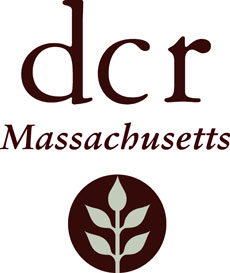- Department of Conservation & Recreation
Media Contact
Olivia Dorrance, Press Secretary
BOSTON — Following a multi-year effort in coordination with advocates, stakeholders, and municipal leaders, the Massachusetts Department of Conservation and Recreation (DCR) today released a master plan to support strategic maintenance and improvement projects within the DCR parkways system. The DCR Parkways Master Plan provides detailed data and project concepts to guide DCR’s capital expenditure with a greater focus on equity, environmental benefits, and public safety.
“DCR parkways provide significant benefits to Massachusetts communities, allowing residents and visitors to travel by car, biking, or walking, and this Master Plan will guide critical investments in the parkways system for years to come,” said Governor Charlie Baker. “By using a thoughtful, data-driven approach, DCR will be able to equitably ensure the diverse uses of its parkways and provide safe and convenient travel options for people of all ages and abilities, and using all modes of transportation.”
“These parkways are great resources for the Commonwealth, connecting communities while providing outdoor recreational opportunities for all residents,” said Lieutenant Governor Karyn Polito. “The findings of this Master Plan will guide key decision making at DCR as it moves forward with critical maintenance and new projects, and ensure an improved and safer experience for bicyclists and pedestrians.”
DCR parkways are “greenways” connecting communities and DCR open spaces across the region, and provide essential routes for regional travel by every mode. Responding to emerging community needs, DCR has emphasized “complete streets” principles on all parkway projects, to ensure parkways enable safe travel and access for users of all ages and abilities regardless of their mode of transportation. The Parkways Master Plan document provides detailed data and project concepts to guide DCR’s capital expenditure in a more equitable and environmentally beneficial direction.
“The Master Plan will serve as an important guide as DCR maintains and designs future full-scale reconstructions of the parkway system,” said Secretary of Energy and Environmental Affair Kathleen Theoharides. “In taking a visionary approach to the long-term sustainability of these important assets, the Baker-Polito Administration is ensuring that future investments will be made with a greater focus on equity and accessibility.”
The Parkway Master Plan articulates a vision for an interconnected network of walkways and bikeways throughout metro Boston that provides residents of all ages and abilities with access to recreational destinations and healthy transportation opportunities. Additionally, DCR has created an office of Green Transportation to lead in the execution of best-in-class implementation of the Master Plan to ensure a “complete streets” approach on all relevant parkway projects. The Parkway Study Master Plan is already being implemented in reconstruction projects at the Arborway, Hammond Pond Parkway, Birmingham Parkway, and Memorial Drive, where DCR is incorporating the broad principles and approach outlined in the plan.
“Already, DCR has used this Master Plan to guide critical projects at Truman Parkway, Greenough Boulevard, and Nonantum Road, as well as short-term improvements we made in Medford and Malden,” said DCR Commissioner Jim Montgomery. “The development of this plan was a collaborative effort between DCR, stakeholders and local leaders, and we will continue to engage with parkway users as we put this plan into action in the years ahead.”
The Master Plan describes the current condition of the existing parkway system, as well as design strategies to address areas for improvement identified in the parkways assessment. Included in the assessment of conditions are analysis of intersections, crosswalks, sidewalks and shared use paths, and bicycle facilities within the parkways system. To address potential improvements, the plan outlines several dozen design strategies, combining traditional traffic calming measures with more modern complete streets approaches tailored for each unique parkway characteristics. Recommendations include the addition of bike lanes when completing routing pavement operations and maximizing space for all parkway users in project design.
In 2015, DCR hired Toole Design Group to prepare a comprehensive conditions assessment and a Master Plan of improvements for a selected group of parkways in the metropolitan Boston region. During the development of the Parkways Master Plan, DCR held several meetings with the Urban Parks and Pathways Committee (UPPC), which included representation from MAPC, Mass Bike, the Boston Cyclists Union, Livable Streets, Walk Boston, MassDOT, and numerous community representatives, and served as the forum for public input into the plan.
###
